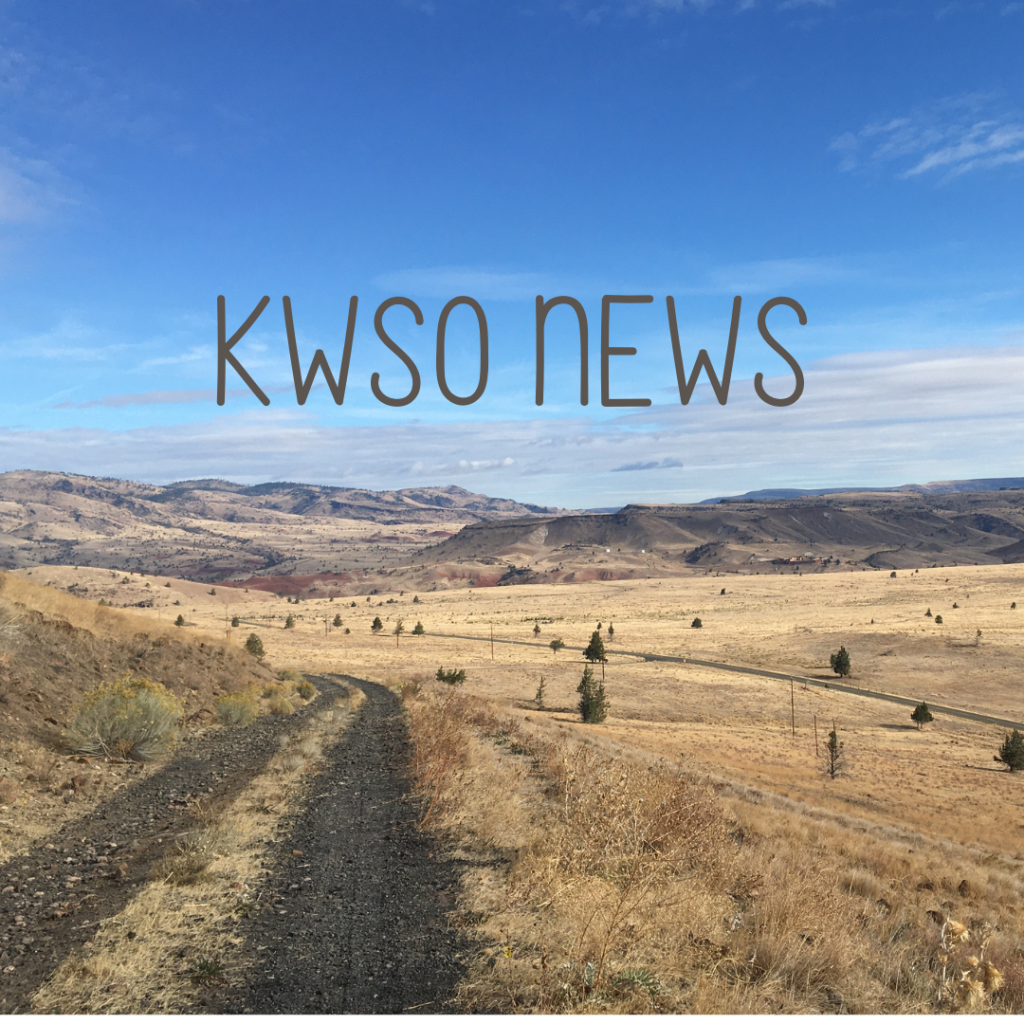Local News
KWSO News for Wed., Jun. 29, 2022
The Madras Aquatic Center Recreation District has youth camps lined up throughout the summer from July 12th through August 26th. They will have different themes each week, ranging from Safety week to Sports week and more. These day camps are for ages 6-10 and costs range from $125 per week for half a day to $250 per week for full day participation and they do have scholarships that can cover between 50% to 100% of the cost. If you are interested or have questions you can call 541-475-4253.
An Oregon Tribe and state leaders have agreed to co-manage fish and wildlife across a large swath of SW Oregon in what they say is a monumental arrangement and the first of potentially more comprehensive management partnerships between the state’s wildlife agency and tribal nations. As reported by OPB, the Oregon Fish and Wildlife Commission unanimously agreed to a framework agreement with the Coquille Indian Tribe giving it more power in fish and wildlife management throughout a five-county area of SW Oregon. Governor Kate Brown said “This agreement presents an important opportunity for the State of Oregon to collaborate with the Tribe on fish and wildlife management, leveraging tribal expertise, knowledge, experience and resources. It also represents a significant step toward enhancing and affirming Tribal Sovereignty.” Still, about a dozen conservation groups, other organizations and individuals opposed the partnership or asked that a vote be postponed during testimony on June 17 and through submitted written comments, citing concerns that the agreement could lead to tribal commercial fishing or hunting, was drafted without adequate public input, ceded too much authority to the tribe, or gave “preferential treatment” to tribal citizens over non-Indigenous Oregonians. The co-management agreement comes as some Oregon tribes have already sought more authority or agreements with state agencies in co-managing natural resources or wildlife in traditional homelands or on tribal lands.
Only a handful of federally-run boarding schools for Native American students remain in the country. As Oregon Public Broadcasting’s Rob Manning reports, federal officials confirmed today (Tuesday) that the boarding school in Oregon is facing yet another investigation. “In recent years, the Government Accountability Office, members of Congress and OPB have all spent time digging into the academics, health and safety protocols and transparency at Chemawa Indian School in Salem. The Interior Department’s Office of Inspector General is returning to Chemawa to look at its finances. Bureau of Indian Education director Tony Dearman told a congressional committee that school leaders are cooperating and waiting for the results. Dearman: But once we receive those recommendations, we’ll definitely look at implementing those to make us stronger and make sure that our oversight is improved. More broadly, the Interior Department is confronting horrific boarding school practices from years ago that forced assimilation for Indigenous children, and even led to deaths. Interior has announced hearings for later this year, but none will be in the Northwest. I’m Rob Manning reporting.”
On Tuesday June 28th the U.S. Environmental Protection Agency (EPA) awarded $399,837 in funding to 16 student teams for their research and innovative solutions to address environmental and public health challenges as part of the Agency’s People, Prosperity and the Planet (P3) Program. Two Universities are receiving funding for the 18th Annual P3 Phase I Awards in EPA’s Region 10. The first is Gonzaga University, whose students will create and test an innovative engineering solution to remove drinking water contaminants. The other is Oregon State University, whose students will research and develop a household heating system for Tribal communities that’s cleaner and more efficient. The 16 Phase I recipients will receive grants of up to $25,000 each and they will be eligible to compete for a Phase II grant of up to $100,000 to further implement their design in a real-world setting.
A challenging fire season this year could be even harder with a firefighter shortage and a delayed pay raise. Jefferson Public Radio’s Roman Battaglia (buh-TAL-ee-uh) reports. “Oregon Senator Ron Wyden visited Southern Oregon Tuesday to get an update on the fire season this year from state fire officials. Wyden has been pressuring the Biden administration to speed up a promised pay increase for wildland firefighters. Congress approved $600 million dollars last year to raise firefighter pay, but that’s been delayed by over a month. Wyden says agencies have fewer firefighters to share with other states as they deal with an ongoing worker shortage. Wyden: “We are looking at a fire challenge where all of these western states are simultaneously gonna need very large numbers of firefighters.” During his meeting with state officials, Wyden says he learned the combination of drought conditions and late rainfall this year means there’s more fuel to burn. That could lead to more wildfires across the region. I’m Roman Battaglia reporting.”
As the Hanford cleanup budget has been reduced in past years, Indigenous and environmentalists are demanding environmental restoration and protection for the people that rely on the Columbia River. Last Friday in Mattawa David Washines participated in “Hanford Journey.” He is the Yakama Nations Government Relations Liaison, and spoke on the long history of the indigenous communities’ relationship with the river. “We’ve come here today to recognize the work that what you call this Hanford Nuclear reservation… There’s a history to this area… our history lane talks about the history and the places that our people the important places that we have a duty, a responsibility to protect. Because you see all the children that are here, they represent the future… It belongs to them.” People called for the federal government to fulfill its obligations to the communities and support the state in the same way Washington supported the country during the war. Laura Watson, Director of the Washington Department of Ecology, says more resources are necessary. “We cannot let the federal government shortchange this obligation, and we get that is an expensive obligation. It is three and a half billion dollars a year. Right now, we’re getting about 2 and a half billion a year from the federal government. So right now the federal government is shortchanging by about a billion dollars a year for us to be able to get the site cleaned up”. The event was hosted by the Yakama Nation Environmental Restoration Waste Management (ERWM) Program, and Columbia Riverkeeper.

